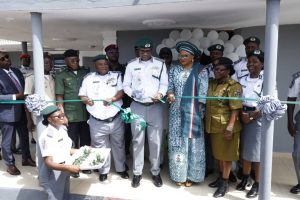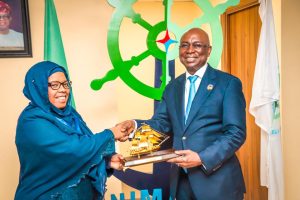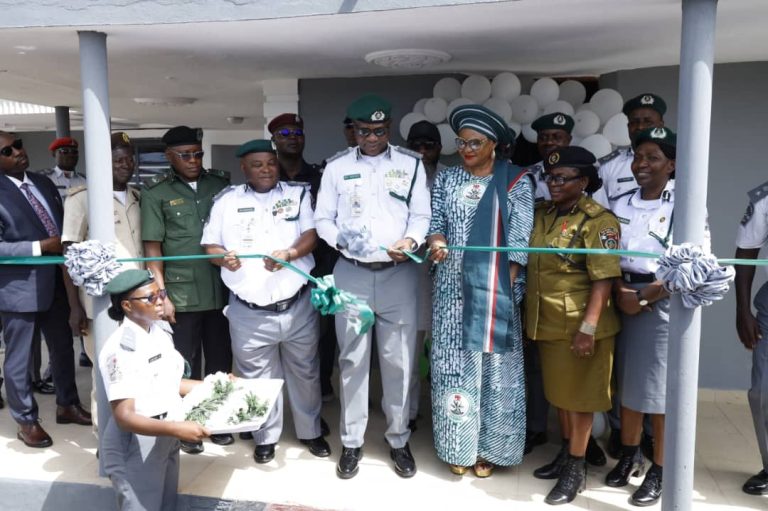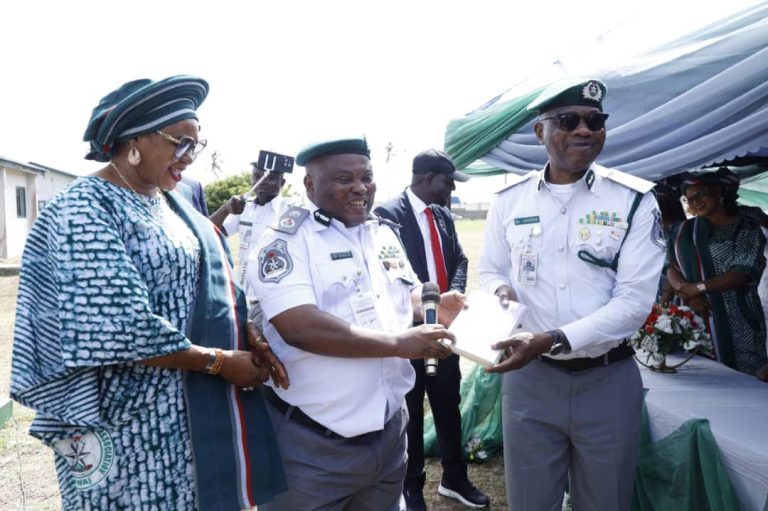- Senators accuse Executive of poor budget implementation
The Federal Government says it has so far released N336 billion to its Ministries, Departments and Agencies for the execution of capital projects in the first quarter of 2017.
The Minister of Finance, Mrs Kemi Adeosun, in a statement by the ministry’s Deputy Director of Information, Mrs Patricia Deworitshe, said this was however less than the N350 billion she had hopped to release for the quarter.
Given that N2.18 trillion was earmarked for capital expenditure for the year 2017, it’s third quarter of the year and the Federal Government has a pending balance of N1.84 trillion to release.
“The Federal Government has, to date, released a total of N336 billion from the 2017 Budget to Federal MDAs for funding of capital projects in the first quarter of 2017.
“The balance of N14 billion is being processed, pending resolution of some formalities within the agencies concerned.
“Power, Works and Housing received the largest allocation of N90 billion, followed by Defence and Security which got N71 billion; transport got N30 billion.
Furthermore, agriculture received N30 billion and water resources got N12 billion.
Other sectors combined, received a total of N103 billion, she said.
Adeosun said the priority on the release of available funds was made in accordance with the objectives of the Economic Recovery and Growth Plan (ERGP).
She said in 2017, the Federal Government would continue to focus on capital expenditure spending on priority sectors to stimulate economic activities and job creation.
“Despite fiscal constraints, the Federal Government was able to fully cash-back the budgeted capital releases so far made, which is a reflection of the current administration’s commitment to economic development,” the minister said,” she said.
The 2017 budget is N7.44 trillion with statutory transfer projections of N434. 41 billion, N1.84 trillion for Debt Servicing and N177.46 billion for Sinking Fund from maturing bonds.
Recurrent expenditure was projected at N2.99 trillion; capital expenditure, N2.18 trillion, and provision of N2.36 trillion was made for fiscal deficit, with deficit to Gross Domestic Product (GDP) put at 2.18 per cent.
In the meantime, senators yesterday alleged that this year’s budget has been poorly implemented. They spoke of the dire financial and economic consequences of the poor implementation.
The lawmakers observed that with three months to the end of the year, only about 10 per cent of the N7.4 trillion budget estimate had been implemented.
Worried by the trend, the senators invited Minister of Finance Mrs. Kemi Adeosun and Budget and Planning Minister Udoma Udo Udoma to explain why the government had failed to release funds.
Senator Yahaya Abdullahi (APC Kebbi), who sponsored the motion entitled “Stabilising and sustaining post-recession growth of the economy”, insisted that the level of harmony between the government’s fiscal and monetary policies was very low.
He complained that the government through the Central Bank of Nigeria (CBN) had spent about $9 billion to stabilise the naira.
The Senate urged the managers of the economy to avoid a relapse into recession by remaining focused and ensuring that the marginal growth of 0.55 per cent is built upon in the months ahead.
The lawmakers stressed the urgency for fiscal and monetary authorities to harmonise their policies, with a view to drastically reducing the prohibitive interest rate that has adversely affected borrowing for investment in the real sector.
They also urged the authorities to reduce the the accumulated domestic debt to free the market for better access by private sector operators.
Senator Barau Jibril Barau (APC, Kano) demanded that the managers be put on their toes, adding that they appeared too complacent.
Barau added that failure to release appropriated funds posed serious threats to the economy.
Senator Dino Melaye (Kogi West) accused the managers of merely joggling figures.
Melaye said: ”If it is true that the foreign reserve has grown from $25 billion to $34 billion, why are we incapacitated in funding the 2017 budget?
“We must go back to the drawing board and take key decisions. We must engage in massive production and we must engage in massive spending too.
What we have done is not a genuine approach to addressing the problem of the economy and getting out of recession.”
Senator Biodun Olujumi (PDP, Ekiti) observed that the country was out of recession only in technical terms.
Olujimi noted that barely three months to the end of the year, implementation of the 2017 budget remained at less than 10 per cent.
Senator Gbenga Ashafa (APC Lagos East) stressed the need for the government to make budgetary releases to stimulate the economy.
He was concerned that since the 2017 Appropriation Act came to being, only about N310 billion had been released by the Federal Government to Ministries, Departments and Agencies as funding for capital projects.
To him, this is far too low to stimulate the economy and address pressing challenges.
Ashafa recalled that Central Bank of Nigeria (CBN) Governor Godwin Emefiele canvassed the urgent need to reflate the economy during the Monetary Policy Committee meeting of the bank on July 25.
Ashafa’s motion noted that the livelihood of millions of Nigerians was directly tied to the funding of the national budget and execution of projects.
The senator insisted that the more the projects executed, the more the chances of millions of Nigerians getting engaged at various levels of the employment value chain.
Additional report from Nation





















